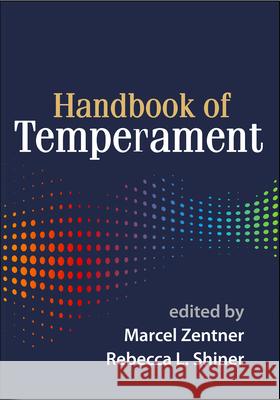Handbook of Temperament » książka
topmenu
Handbook of Temperament
ISBN-13: 9781462524990 / Angielski / Miękka / 2015 / 750 str.
Handbook of Temperament
ISBN-13: 9781462524990 / Angielski / Miękka / 2015 / 750 str.
cena 342,79
(netto: 326,47 VAT: 5%)
Najniższa cena z 30 dni: 317,30
(netto: 326,47 VAT: 5%)
Najniższa cena z 30 dni: 317,30
Termin realizacji zamówienia:
ok. 22 dni roboczych.
ok. 22 dni roboczych.
Darmowa dostawa!
Timely and authoritative, this unique handbook explores the breadth of current knowledge on temperament, from foundational theory and research to clinical applications. Leaders in the field examine basic temperament traits, assessment methods, and what brain imaging and molecular genetics reveal about temperament's biological underpinnings. The book considers the pivotal role of temperament in parent–child interactions, attachment, peer relationships, and the development of adolescent and adult personality and psychopathology. Innovative psychological and educational interventions that take temperament into account are reviewed. Integrative in scope, the volume features extensive cross-referencing among chapters and a forward-looking summary chapter.











